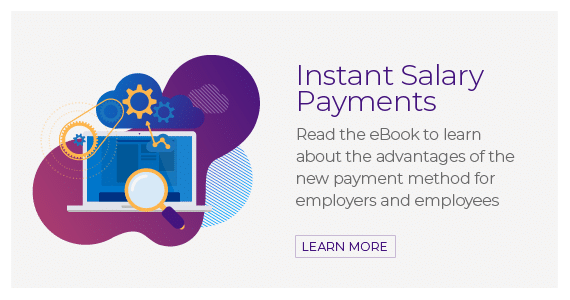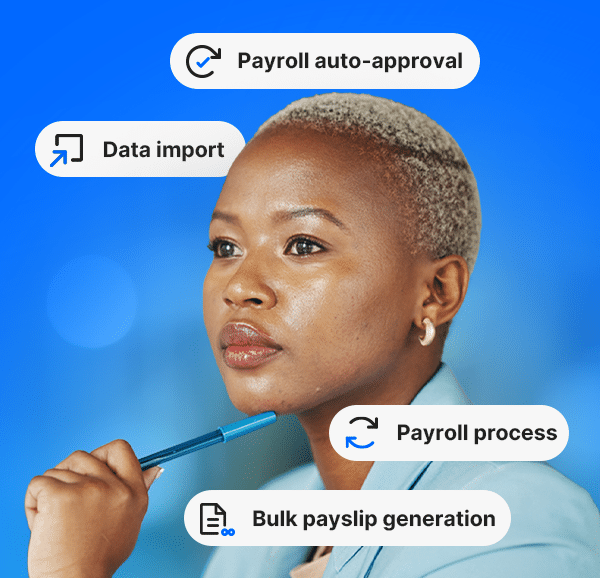Even with the advent of online banking and digital transfers of funds, the ways in which employees get paid haven’t really changed all that much in the last few decades.
Salaried staff receive an equal part of their annual wage on fixed dates, typically every month or every two weeks. Staff paid hourly get paid a certain amount, depending on how many hours they’ve worked, but also only receive their pay according to a fixed time schedule.
This has suited employers and employees for a long time, but things are changing fast. In a world where convenience and automation are increasingly king, many employees want their employers to explore new, more flexible ways of being paid for the work they do. This blog explains what these new payment methods are and why they’re so important from a business perspective.
Why new payment options are gaining traction
There are a number of different reasons why the calls for flexible pay options are getting louder, and the first, as mentioned above, is convenience. In an online world where employees have banking, bill payments, retail and all manner of financial outgoings at their fingertips, they have come to expect the same level of immediacy and user-friendliness from their income, too.
The other main reason applies at the lower end of the scale, as flexibility can be critical in supporting unbanked team members in their quality of life. A lack of access to a bank account is a problem for people all over the world. More than seven million households in the United States alone are unbanked and are far more likely to be on low incomes. As a result, they often have to turn to expensive financial services like payday loans and check cashing to manage their cash flow, which can easily lead them into a spiral of debt that they can’t get out of.
So while these two factors are very different, they both contribute to the same outcome: high demand for access to earnings before regularly scheduled paydays. In the U.S., 60% of workers would like this kind of incentive to be made available to them.
Which new methods of pay can you explore?
A good place to start in exploring pay flexibility is in depositing payments directly into employee bank accounts, if your business doesn’t do this already. But beyond this, there are two other innovations based on new technology that are essential to explore in 2023:
- Earned Wage Access (EWA): also known as on-demand pay, this major shift in payroll approach means employees accrue pay in real-time on a daily or shift-by-shift basis, as they would with paid leave. They can then access an online platform at any time, where they can view how much they have accrued, and immediately withdraw as much as they need to their personal bank account. This is more convenient and transparent for employees, gives payroll teams flexibility and lower admin burdens, and can act as an attractive initiative when trying to recruit talented staff.
- Digital payroll processes: there have never been more digital means of making payments to employees, and many of the options available will be far more convenient to them, especially if they don’t have a traditional bank account. These include paying straight to debit and credit cards (‘Instant Salary Payments’), using cryptocurrencies or virtual wallets like Google Pay and Apple Pay, using pre-paid cards, or exploring different types of bank transfer such as ACH, BACS, SEPA and wire transfers.
How can you benefit from a business perspective?
Firstly, if you’re able to offer new methods of pay, then you will stand out in your marketplace. Currently only a very small percentage of employers are offering on-demand pay internationally across their workforce. The adoption of new technologies to support flexible payment methods can not only improve your chances of recruiting new employees, but also make it easier to motivate and retain your existing workforce.
The impact that flexibility can have on employee satisfaction can’t be underestimated. When employees don’t feel financial pressure in their personal lives, they’ll feel happier, less stressed, and more valued by their employer. All these can contribute to higher rates of productivity and lower levels of absenteeism.
In summary
All of the above ideas are reflective of changes in society as a whole, especially in the wake of the pandemic. People expect to be able to run as much of their lives as possible from a smartphone without it being stressful, time-consuming or requiring help from others. And as life becomes more flexible, rigid payroll cycles are increasingly compromising for many employees. By enabling true 24/7 payroll, backed up by the right process technologies and managed services, EWA stands out in particular as the way to make payroll work for everyone.
When you partner with CloudPay, you’re teaming up with an expert in global payroll and new methods of pay. Take a look at how we can support your business with Earned Wage Access and Global Treasury Services.



